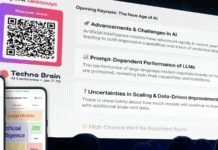
Is artificial intelligence redefining the travel experience?
On a recent episode of The McKinsey Podcast, McKinsey partners Alex Cosmas and Vik Krishnan joined global editorial director Lucia Rahilly to discuss a recent report on travel in the age of AI. Much of the research for the report drew from interviews with executives at 17 companies across five types of travel businesses. There was consensus that advanced technologies have both promise and pitfalls. What’s clear is that there are profound implications for the travel industry.
5 Takeaways:
- McKinsey predicts that generative (gen) AI—artificial intelligence capable of generating text, images, or other media—will unlock $2 trillion to $4 trillion of incremental value across all sectors of the travel industry.
- Gen AI will significantly ease and shorten the process of travel discovery: understanding where travelers want to go, where they want to stay, what things they want to see and how they want to plan their daily activities.
- For travel suppliers, gen AI can help to ensure that planes arrive on time and that hotels deliverer products and services consistent with their marketing and branding.
- AI is already being widely applied in the travel sector, but it is behind the scenes. The customer-facing applications are only now becoming next-generation. Many AI applications will continue to be opaque to travelers, because they’ll still be delivered through the medium that most prefer: humans, including front-line hotel staff and meeting and event planners. The reality in travel is that the quality of the guest/attendee experience is often tied to human interaction.
- Human thinking is the actual challenge for both gen and predictive AI (using large data repositories to recognize patterns across time and suggest outcomes and trends). This means understanding the data, asking the right questions, reading prediction versus actual and doing all this in a timely manner.
You May Also Be Interested In…
MPI Launches New Event Planning AI Certificate Program
AI is Everywhere. But an Industry White Paper Suggests Ethical Concerns.










